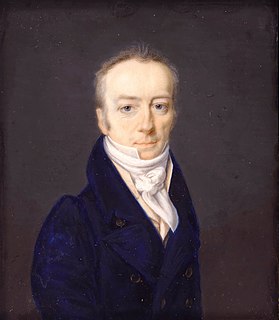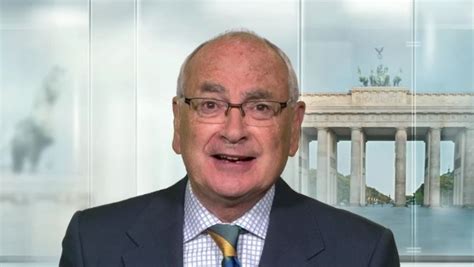A Quote by Blaise Pascal
It is of dangerous consequence to represent to man how near he is to the level of beasts, without showing him at the same time his greatness. It is likewise dangerous to let him see his greatness without his meanness. It is more dangerous yet to leave him ignorant of either; but very beneficial that he should be made sensible of both.
Related Quotes
It is dangerous to explain too clearly to man how like he is to the animals without pointing out his greatness. It is also dangerous to make too much of his greatness without his vileness. It is still more dangerous to leave him in ignorance of both, but it is most valuable to represent both to him. Man must not be allowed to believe that he is equal either to animals or to angels, nor to be unaware of either, but he must know both.
I'll not meddle with it; it is a dangerous thing; it makes a man a coward; a man cannot steal, but it accuseth him; a man cannot swear, but it checks him; a man cannot lie with his neighbor's wife, but it detects him. 'Tis a blushing, shame -faced spirit, that mutinies in a man's bosom ; it fills one full of obstacles; it made me once restore a purse of gold that by chance I found; it beggars any man that keeps it; it is turned out of all towns and cities for a dangerous thing; and every man that means to live well endeavors to trust to himself and live without it.
It makes him contemptible to be considered fickle, frivolous, effeminate, mean-spirited, irresolute, from all of which a prince should guard himself as from a rock; and he should endeavour to show in his actions greatness, courage, gravity, and fortitude; and in his private dealings with his subjects let him show that his judgments are irrevocable, and maintain himself in such reputation that no one can hope either to deceive him or to get round him.
Every subject's duty is the King's; but every subject's soul is his own. Therefore, should every soldier in the wars do as every sick man in his bed, wash every mote out of his conscience; and dying so, death is to him advantage; or not dying, the time was blessedly lost wherein such preparation was gained; and in him that escapes, it were no sin to think that, making God so free an offer, He let him outlive the day to see His greatness and to teach others how they should prepare.
The person who experiences greatness must have a feeling for the myth he is in. He must reflect what is projected upon him. And he must have a strong sense of the sardonic. This is what uncouples him from belief in his own pretensions. The sardonic is all that permits him to move within himself. Without this quality, even occasional greatness will destroy a man.
No one knows how greatness comes to a man. It may lie in his blackness, sleeping, or it may lance into him like those driven fiery particles from outer space. These things, however, are known about greatness: need gives it life and puts it in action; it never comes without pain; it leaves a man changed, chastened, and exalted at the same time--he can never return to simplicity.
We are in an extremely dangerous situation. It was ignorant and ahistorical for Donald Trump to say that the EU will dissolve. He is a man of very little historical understanding. For example, when he accused his own intelligence community of using Nazi tactics against him, he was actually confusing the Nazis with East Germany's secret police, the Stasi. Trump also has no idea that for 70 years, it has been U.S. policy to support those who want to unite Europe. It is very dangerous that he is turning his back on Europe now.
For here we are so blind and foolish that we never seek God until he, of his goodness, shows himself to us. It is when we do see something of him by his grace that we are stirred by that same grace to seek him, and with earnest longing to see still more of his blessedness. So I saw him and sought him; I had him and wanted him. It seems to me that this is and should be an experience common to us all.
I wish I were stronger and more secure in myself so that I could really spend my life with a guy like Lenny. Because he has a different kind of strength than Joshie. He has the strength of his sweet tuna arms. He has the strength of putting his nose in my hair and calling it home. He has the strength to cry when I go down on him. Who IS Lenny? Who DOES that? Who will ever open up to me like that again? No one. Because it's too dangerous. Lenny is a dangerous man. Joshie is more powerful, but Lenny is much more dangerous.
The ignorant man is not free, because what confronts him is an alien world, something outside him and in the offing, on which he depends, without his having made this foreign world for himself and therefore without being at home in it by himself as in something his own. The impulse of curiosity, the pressure for knowledge, from the lowest level up to the highest rung of philosophical insight arises only from the struggle to cancel this situation of unfreedom and to make the world one's own in one's ideas and thought.







































